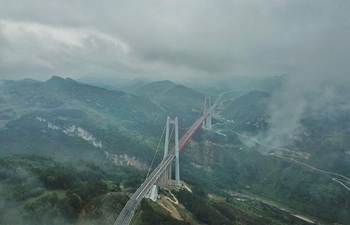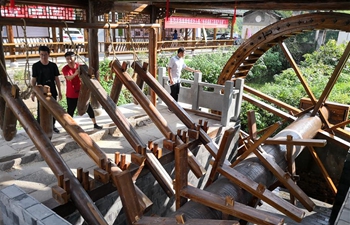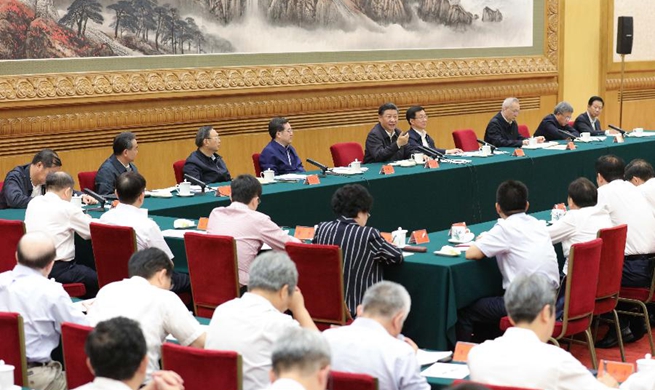by Ouyang Wei
VALENCIA, Spain, Aug. 27 (Xinhua) -- Looking out of the windows of his office near the Port of Valencia, Spain, Sun Kai can clearly see the huge "arms" of bridge cranes stretching out into the sky.
"Every day, when looking out at those cranes, I see my company's business expand in concrete steps," said Sun, chief executive officer of Noatum Ports S.L.U.
Headquartered in Valencia on the Mediterranean coast, the company operates container terminals in the Port of Valencia and the Port of Bilbao on the northern Atlantic coast, and railway terminals in Zaragoza and Madrid.
Last November, COSCO Shipping Corporation Ltd -- a Chinese shipping giant -- acquired a majority stake in the Spanish company.
The investment was accompanied by advanced management, know-how and global resources, energizing Spain's transport and logistics industry.
"China has accumulated abundant management experience in running container terminals. After the acquisition, we've gradually introduced an advanced operation process and management into Noatum, and improved efficiency," said Sun.
With the help of the Chinese management team, the company has established an operations department to increase efficiency at the ports and railway terminals. A new health, security and safety department has been set up to ensure the company meets the highest safety standards.
It has also established a railway service unit to improve intermodal transport between Spain's coastal areas and hinterland, and is working on a project to upgrade the operating system of the two ports.
From January to July, containers handled by the company reached 2.08 million twenty-foot equivalent units (TEUs), with an annual increase of 13.2 percent.
Sun said he expects the company to handle 3.7 million TEUs this year, up by over 12 percent from 2017.
"We are in the best position now," said Elvira Gallego, general manager of Noatum Container Terminal Bilbao.
"The current management is more efficient ... I think we have a good executive management team at the headquarters, and we have everything updated," she said.
"COSCO is a huge investor, we now have COSCO's shipping lines that will help us to get bigger, and we have a big portion of the trade between Spain and China. I think it's the best moment," she said.
The Port of Valencia is a main gateway to the Iberian Peninsula. It handled 4.83 million TEUs last year, making it the largest port in the Mediterranean region and the fifth-largest in Europe in terms of container traffic, according to port officials.
"China is a strategic country for the Port of Valencia, given that 50 percent of foreign trade between Spain and China passes through it," said Francesc Sanchez, general director of the Port Authority of Valencia.
More than 55 percent of Spain's gross domestic product comes from the area within a 350-km radius of the port, he said.
The Belt and Road Initiative has boosted cultural exchange apart from goods exchange, he said. "It is an opportunity for both Chinese companies and the Spanish economy."
"This important investment effort from China in Bilbao means a significant improvement in the efficiency of the logistics system as well as more shipping lines," said Ricardo Barkala, chairman of the Port Authority of Bilbao.
The Port of Bilbao is the hub linking Spain with other European countries along the northern Atlantic coast. Among the port's 12 main markets, China is only second to Britain in container traffic.
"China's Belt and Road Initiative is an economic and geostrategic huge opportunity for the world, mainly for international trade," said Barkala.



















